Best Philippines Brokers
Best Philippines Brokers Table of Contents
- What is the role of brokers in the Philippines?
- How do I choose a reputable broker in the Philippines?
- What are the licensing and regulatory requirements for brokers in the Philippines?
- What types of financial products can brokers in the Philippines trade?
- How do brokers in the Philippines earn their income?
- Are there any restrictions on foreign individuals or companies becoming brokers in the Philippines?
- How do brokers in the Philippines Secure client data?
- What are the fees associated with using a broker in the Philippines?
- What is the process for opening a brokerage account in the Philippines?
- How do brokers in the Philippines handle customer complaints and disputes?
- Are there any specific qualifications or certifications required to become a broker in the Philippines?
- What is the process for verifying the credentials and track record of a broker in the Philippines?
- What are the advantages of using online stock brokers for stock trading?
- How can I register a trading account with an online broker in the Philippines?
- Best Philippines Brokers List Compared
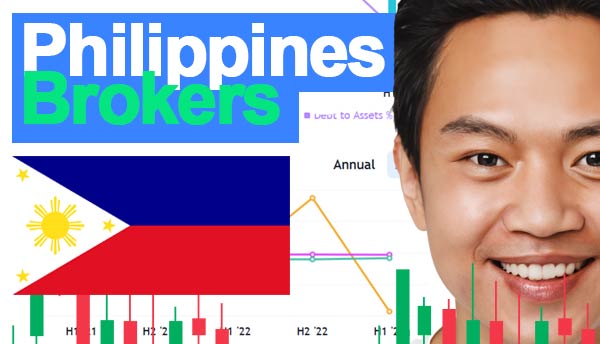
When investing in the Philippines, finding the best stock and forex brokers is essential for active forex traders. These brokers provide the tools and platforms for active trading in forex, stocks, and other financial instruments. With features like demo accounts, investors can practice and refine their trading strategies without risking real money. Notable Philippine brokers like BPI Securities Corp, UCPB Securities and Timson Securities offer low trading fees, automated trading options, and access to various financial markets. They cater to local and international traders, providing services ranging from stock broker accounts to mutual fund investments.
What is the role of brokers in the Philippines?
Brokers in the Philippines, including stock and forex brokers, play a pivotal role in the financial landscape by connecting investors to the markets and facilitating various transactions. Stock and best forex brokers serve as intermediaries between investors and the Philippine Stock Exchange (PSE). They assist clients in buying and selling stocks, providing market research, and executing trades on behalf of their clients. Some prominent stock brokerage best forex broker firms in the Philippines include AB Capital Securities, Metro Securities Brokerage Corp, and COL Financial Group Inc.
On the other hand, forex brokers in the Philippines enable individuals and businesses to participate in the foreign exchange market. These best forex brokers provide trading platforms and access to global currency markets, allowing investors to trade forex pairs and potentially profit from currency fluctuations. The Securities and Exchange Commission regulates brokers in the Philippines and must follow the guidelines set by the regulatory authority.
Overall, brokers in the Philippines act as trusted intermediaries between investors' securities themselves, offering investment opportunities, market insights, and transaction execution services to both individual and institutional investors.
How do I choose a reputable broker in the Philippines?
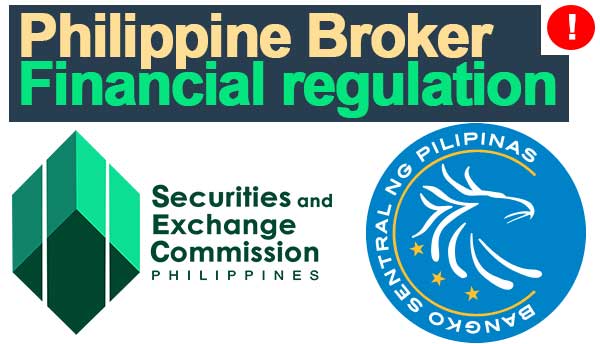
Several factors should be considered when selecting a reputable broker in the Philippines to ensure a reliable and secure investment experience. First and foremost, verifying if the broker has a license and regulated by the Securities and Exchange Commission of the Philippines is important. This regulatory oversight helps protect investors' interests and ensures brokers operate within the legal framework.
Additionally, it is advisable to consider the broker's reputation in the market. Look for reviews, testimonials, and feedback from other brokers' clients to gauge their customer satisfaction and reliability. Reputable brokers often have a solid track record and are known for their transparency and integrity.
Another crucial aspect is the broker's range of investment assets and services, like a demo account. Consider whether they provide access to the specific financial products you are interested in, such as stocks, forex, or mutual funds. Assess the quality of their trading platforms and whether they offer features like demo accounts or online account openings to facilitate a smooth investment process.
Fees associated with using a savings account at the broker should also be evaluated. Compare the commission rates, transaction fees, and other costs to ensure they align with your investment goals and budget.
Lastly, consider the broker's level of customer support. A reputable broker should offer responsive and knowledgeable customer service to address concerns or queries promptly.
By considering these factors, you can decide and select a reputable broker in the Philippines that suits your investment needs and objectives.
What are the licensing and regulatory requirements for brokers in the Philippines?
Brokers in the Philippines are subject to licensing and regulatory requirements to ensure the integrity da market securities and the protection of investors. The SEC is the primary authority overseeing brokers in the country. Stock brokers must be registered with the Philippine Stock Exchange (PSE) and adhere to the rules and regulations set by both the SEC and the PSE.
To obtain a license, brokers must meet certain criteria, including the necessary capital, infrastructure, and compliance systems. They are required to maintain financial records, undergo regular audits, and submit reports to the regulatory authorities.
The licensing and regulatory framework aims to safeguard investors' interests, promote fair and transparent markets, and maintain the financial system's stability. By complying with these requirements, brokers demonstrate their commitment to operating professionally and responsibly.
What types of financial products can brokers in the Philippines trade?
Brokers in the Philippines offer a wide range of financial products that cater to different investment preferences and risk appetites. These products include stocks, bonds, mutual funds, foreign exchange (forex), commodities, and derivatives.
Stock brokers facilitate the trading of stocks listed on the Philippine Stock Exchange. Investors can purchase and sell shares of popular companies through brokerage accounts. Stock brokers provide market research, investment advice, and execution services to assist clients in making informed investment decisions.
Forex brokers enable individuals and businesses to participate in the global currency markets. They offer forex trading through platforms that allow investors to trade forex pairs, speculating on the price movements of one currency relative to another. Forex trading in the Philippines is regulated by the Securities and Exchange Commission (SEC).
Additionally, brokers in the Philippines may provide access to other investment products such as bonds, mutual funds, and commodities. Bonds are debt assets issued by governments or corporations, while mutual fund funds pool money from multiple investors to invest in a diversified portfolio of securities. Commodities include precious metals, energy products, and agricultural goods.
By offering diverse financial products, brokers in the Philippines cater to the investment needs and preferences of a wide range of investors.
How do brokers in the Philippines earn their income?
Brokers in the Philippines earn their income through various sources, primarily from commissions and fees associated with their services. The specific revenue streams may vary depending on the type of broker and the products they offer.
Stock brokers typically earn commissions on the transactions executed on behalf of their clients in the Philippine stock market. They charge a percentage of the total value of each trade as their commission. Some brokers may also charge extra fees for research reports, market analysis, or access to premium trading platforms.
Forex brokers earn income through spreads, the difference between currency pairs' buying and selling prices. They quote two prices to clients, the bid price and the asking price, and the difference between the two is the spread. Forex brokers make money by capturing a portion of the spread on each trade their clients execute.
In addition to commissions and spreads, brokers may generate income from other sources, such as account maintenance fees, annual subscription fees for premium services, margin interest, and specialized trading products or features.
It's worth noting that some brokers may offer additional services or investment products that generate revenue, such ba securities such as mutual funds, insurance products, or wealth management services. These additional offerings can contribute to the overall income of the broker.
Overall, brokers in the Philippines earn their income through commissions, spreads, and various fees associated with the services they provide to their clients.
Are there any restrictions on foreign individuals or companies becoming brokers in the Philippines?
There are certain restrictions in the Philippines on foreign individuals or companies becoming brokers. The SEC and other regulatory bodies have guidelines to regulate foreign entities' participation in the local brokerage wealth securities industry.
Foreign individuals or companies seeking to become brokers in the Philippines must establish a local subsidiary or partnership with a local entity. It is done to ensure compliance with the legal and regulatory framework of the country. The local subsidiary or partnership would then need to obtain the necessary licenses and approvals from the SEC and other regulatory authorities.
These restrictions aim to maintain the stability and integrity of the Philippine financial markets while protecting local investors' interests. By requiring foreign entities to establish a local presence, the regulatory authorities can exercise oversight and ensure that brokers operate by the country's laws and regulations.
It is vital for foreign individuals or companies interested in becoming brokers in the Philippines to consult with legal and regulatory experts to navigate the specific requirements and restrictions imposed by the SEC and other relevant authorities.
How do brokers in the Philippines Secure client data?
Brokers in the Philippines prioritize the security and confidentiality of client information by implementing stringent measures and adhering to industry best practices. International brokers must safeguard client data to maintain trust and protect investors' privacy.
To ensure security, brokers employ a combination of physical and electronic communications networks and technical and administrative safeguards. They may utilize secure data centres, encryption protocols, firewalls, and intrusion detection systems to protect client information from unauthorized access or breaches.
Confidentiality is maintained through strict internal policies and procedures that control access to client data. Brokers restrict access to client information to authorized personnel only and implement rigorous authentication mechanisms to verify the identity of individuals accessing sensitive data.
Moreover, brokers comply with the Philippines' applicable data protection and privacy laws, such as the Data Privacy Act 2012. They may have designated data protection officers responsible for ensuring compliance with these regulations and handling data-related concerns or breaches.
By prioritizing security and confidentiality, brokers in the Philippines aim to instil confidence in their clients and demonstrate their commitment to protecting sensitive information throughout the client-broker relationship.
What are the fees associated with using a broker in the Philippines?
When using a broker in the Philippines, there are several fees that investors should be aware of. These fees can vary among different brokers, and it's essential to understand them to make informed investment decisions.
One common fee is the commission charged for executing trades. Stock brokers typically charge a percentage-based commission on the total value of each transaction conducted in the Philippine stock market. The commission rate may vary depending on factors such as the trade size and the type of securities involved.
Another fee to consider is the transaction fee imposed on interactive brokers by the Philippine Stock Exchange (PSE). This fee is the minimum deposit charged on every transaction and is typically a small percentage of the trade value.
In addition to commissions and transaction fees, brokers may charge fees for other services. For example, some brokers offer research reports or market analyses, which may incur additional charges. Access to premium trading platforms or advanced tools can also incur fees.
It's important to review and compare the fee structures of different brokers to ensure transparency and to find the best fit for individual investment needs. Evaluating the fees associated with using a broker in the Philippines is crucial to effectively managing investment costs and optimizing returns.
What is the process for opening a brokerage account in the Philippines?
Opening a brokerage account in the Philippines typically involves several steps. Here's a general overview of the process:
-
Research and select a broker: Research different brokers in the Philippines and compare their offerings, fees, and services. Consider factors such as the range of investment products, trading platforms, customer support, and reputation.
-
Gather Required Documents: Prepare the necessary documents for account opening. It may include valid identification documents (e.g., passport, government-issued ID), proof of address (e.g., utility bills, bank statements), and any other specific requirements requested by the chosen broker.
-
Complete Account Opening Forms: Fill out the account opening forms provided by the broker. These forms typically require personal information, contact details, and investment objectives. Review the forms carefully and ensure accurate and complete information.
-
Submit Documents and Forms: Submit the required documents and completed forms to the broker. Depending on the broker's procedures, it can often be done electronically through online platforms or by visiting a physical branch.
-
Fund Your Account: Once the account is approved and activated, you must deposit funds into your brokerage account. Brokers usually provide various funding options such as bank transfers, online banking, or electronic payment systems.
-
Familiarize Yourself with Trading Platforms: Familiarize yourself with the broker's trading platform after funding your account. Most brokers have online trading platforms that allow you to monitor market movements, execute trades, and access account information.
-
Start Trading: You can begin trading with your account set up and funded. Conduct thorough research, analyze investment opportunities, and make informed trading decisions based on your investment goals and risk tolerance.
It's important to note that the specific online account opening process may vary slightly depending on the broker. It's advisable to consult the broker's website or contact customer support for detailed instructions on opening a brokerage account.
How do brokers in the Philippines handle customer complaints and disputes?
Brokers in the Philippines have established procedures to address customer complaints and disputes fairly and transparently. These procedures aim to protect the interests of investors and maintain trust in the financial markets. Here's an overview of how local brokers handle such situations:
-
Internal Complaint Handling: Brokers typically have dedicated customer service departments to handle complaints and disputes. When a complaint is received, it is assigned to a designated representative who investigates the matter and works toward a resolution. It may involve gathering relevant information, reviewing trading records, and analyzing complaints.
-
Communication and Documentation: Brokers maintain clear communication channels with customers throughout the complaint resolution process. They provide regular updates and request additional information or documentation to address the issue effectively. Customers must keep all communication records and provide relevant evidence to support their claims.
-
Mediation and Arbitration: Brokers may offer mediation or arbitration services if a complaint cannot be resolved through internal procedures.
-
Regulatory Oversight: Brokers in the Philippines are monitored by financial regulators like the SEC. The SEC ensures compliance with regulations and may intervene in cases where customer complaints remain unresolved or indicate potential misconduct. Customers can file complaints with the SEC if they believe the broker has not adequately addressed their concerns.
Investors must familiarize themselves with the broker's complaint-handling procedures and understand the available recourse options. Customers can seek fair and satisfactory outcomes by promptly reporting complaints and actively engaging in the resolution process.
Are there any specific qualifications or certifications required to become a broker in the Philippines?
To become a broker in the Philippines, certain qualifications and certifications are typically required to ensure competence and adherence to regulatory standards. Here are the key requirements:
-
Licensing and Registration: Brokers in the Philippines must be licensed with the SEC. They must fulfil specific eligibility criteria, such as having a minimum capital, maintaining proper infrastructure, and meeting financial and operational requirements.
-
Certification Examinations: Aspiring and online stock brokers must pass the Certified Securities Representative Examination (CSRE) administered by the Philippine Stock Exchange (PSE) and the SEC. This examination tests the candidate's knowledge of securities laws, regulations, market operations, and ethical practices.
-
Continuing Education: To stay updated with industry developments, brokers are encouraged to participate in continuing education programs and attend seminars or training sessions organized by reputable organizations. These programs help brokers enhance their knowledge, skills, and understanding of financial markets, products, and regulatory changes.
-
Compliance with Professional and Ethical Standards: Brokers must comply with professional and ethical standards set by regulatory bodies.
By fulfilling these qualifications and certifications, brokers in the Philippines demonstrate their commitment to professionalism, competence, and regulatory compliance. As investors, it's important to choose brokers who have met these requirements to ensure the highest service and protection of your investment interests.
What is the process for verifying the credentials and track record of a broker in the Philippines?
When choosing a stock or forex broker in the Philippines, assessing their credentials and track record is crucial to ensure reliability and trustworthiness. Here are some steps you can take to conduct a thorough evaluation:
-
Regulatory Compliance: Verify if the broker is regulated in the Philippines, like the Philippines Securities and Exchange Commission (SEC) for stock brokers and the Dubai Financial Services Authority (DFSA) for forex brokers. These registrations ensure the broker operates within the legal framework and adheres to industry regulations.
-
Research and Reviews: Conduct online research and read reviews from reputable sources to gather information about the broker. Look for feedback from other investors and traders who have used their services. Pay attention to factors like customer satisfaction, promptness in executing trades, and the quality of customer support.
-
Track Record and Experience: Assess the broker's track record and experience in the industry. Look for established brokers with a proven history of providing reliable services. Consider factors such as the years they have been in operation, their client base, and any accolades or recognition they have received.
-
Transparency and Disclosure: A reputable broker should provide transparent and comprehensive information about their services, fees, trading platforms, and account types. Ensure they disclose all relevant terms and conditions, including fees, commissions, and potential conflicts of interest.
-
Client Support: Evaluate the broker's customer support services. Check if they offer multiple communication channels like phone, email, or live chat. Prompt and effective customer support is essential for addressing any concerns or issues you may have during your trading journey.
By following these steps and conducting thorough due diligence, you can make an informed decision when selecting a broker in the Philippines. It's advisable to compare multiple brokers and choose the one that best matches your investment goals, trading preferences, and risk tolerance.
What are the advantages of using online stock brokers for stock trading?
Online stock brokers offer several advantages for live international stock market trading in the Philippines. Here are some key advances of using online stock brokers:
-
Convenience and Accessibility: Online stock brokers provide a user-friendly platform that allows investors to access their trading accounts anytime and anywhere with an Internet connection. This convenience eliminates the need for physical visits to a broker's office, enabling investors to monitor and execute trades at their convenience.
-
Lower Costs and Fees: Online stock brokers generally have lower trading fees and commissions than traditional brokers. They often offer discounted rates, which can significantly reduce trading costs, especially for frequent traders or those with smaller investment portfolios. This cost-effectiveness allows investors to maximize their returns and increase their profitability.
-
Wide Range of Investment Options: Online stock brokers typically offer a broad range of investment assets, including stocks, exchange-traded funds (ETFs), mutual funds, and more. This variety allows investors to diversify their portfolios and access different asset classes, enabling them to tailor their investments to their financial goals and risk tolerance.
-
Access to Research and Analysis Tools: Many online stock brokers provide access to comprehensive market research, analysis tools, and real-time data. These resources empower investors to make informed decisions based on market trends, financial reports, and technical analysis. They can also access educational materials and tutorials to enhance their trading knowledge and skills.
-
Demo Accounts for Practice: Online stock brokers often offer demo accounts, allowing users to practice trading strategies and familiarize themselves with the platform's features without risking real money. Demo accounts simulate real market conditions enable novice traders to gain confidence and experience before committing funds.
By choosing a reputable online stock broker, investors can leverage these advantages to optimize their best stock broker trading experience. It's essential to consider factors such as reliability, customer support, trading hours, platform features, and security when selecting the best online stock broker that suits your specific trading needs.
How can I register a trading account with an online broker in the Philippines?
To open a trading account with an online stock broker account here in the Philippines, follow these general steps:
-
Research and Choose a Broker: Research and compare online brokers in the Philippines. Consider factors such as reputation, regulatory compliance, trading fees, available markets, customer support, and platform features. Look for brokers that align with your trading goals and preferences.
Visit the Broker's Website: Once you've chosen a suitable online broker, visit their official website. Look for a section related to account opening or registration.
-
Complete the Application Form: Fill out the registration issued by the broker. You'll need to provide personal information such as your name, contact details, identification documents, and financial information. Ensure that the information you provide is accurate and up to date.
-
Submit Required Documents: Along with the application form, you'll usually be required to submit supporting documents. These may include identification documents (e.g., passport, driver's license), proof of address (e.g., utility bill, bank statement), and financial documents (e.g., bank statements, income proof).
-
Account Verification: After submitting the application and documents, the broker will typically verify your information. It may involve a verification process where you provide additional documents or undergo identity verification through video calls or in-person visits.
-
Fund Your Account: Once verified, you must deposit funds into your trading account. Most online brokers offer various funding methods, such as bank transfers or online payment gateways. Follow the instructions to complete the deposit process.
-
Start Trading: With your trading account funded, you can access the broker's online trading platform and begin trading stocks, forex, or other financial instruments. Familiarize yourself with the platform, research available investment options, and develop a trading strategy.
Remember, each online broker may have specific requirements and procedures for account opening. It's important to carefully review their instructions and seek assistance from their customer support if needed. Opening an account with an online broker allows you to actively participate in the financial markets, take advantage of investment opportunities, and grow wealth.
The Philippines boasts diverse brokers catering to active and forex traders' needs. From established institutions like IC Markets, BPI Securities Corp and UCPB Securities to emerging players like Timson Securities, these brokers offer services such as demo accounts, automated trading, and low minimum deposits. They provide access to the Philippine Stock Exchange Centre, facilitate trading forex, and offer various investment options, including mutual funds. With user-friendly platforms, competitive fees, and a commitment to serving experienced traders and newcomers alike, these brokers play a crucial role in the country's financial landscape. Whether you're an advanced investor or just starting, choosing the right forex broker can significantly enhance your trading experience and help you achieve your financial goals.
Best Philippines Brokers List Compared
| Featured Philippines Broker Trading Platform | Account Features | Trading Features |
|---|---|---|
| Used By: 180,000 Instruments Available: 232 Stocks Available: 2100 US Stocks: Yes UK Stocks: Yes German Stocks: Yes Japanese Stocks: Yes Indices: Yes Forex Pairs Available: 61 Major Forex Pairs: Yes Minor Forex Pairs: Yes Exotic Forex Pairs: Yes Minimum Deposit: 200 |
Platforms: MT4, MT5, Mirror Trader, ZuluTrade, Web Trader, cTrader, Mac Negative Balance Protection: Inactivity Fee: No Losses can exceed depositsVisit |
|
| Used By: 10,000 Instruments Available: 100 Stocks Available: 10000 US Stocks: Yes UK Stocks: Yes German Stocks: Yes Japanese Stocks: Yes Indices: Yes Forex Pairs Available: 60 Major Forex Pairs: Yes Minor Forex Pairs: Yes Exotic Forex Pairs: Yes Minimum Deposit: 100 |
Platforms: MT4, MT5, IRESS, Mac, Web Trader, Tablet & Mobile apps Negative Balance Protection: Inactivity Fee: No Losses can exceed depositsVisit |
|
| Used By: 10,000 Instruments Available: 50 Stocks Available: 0 US Stocks: No UK Stocks: No German Stocks: No Japanese Stocks: No Indices: No Forex Pairs Available: 65 Major Forex Pairs: Yes Minor Forex Pairs: Yes Exotic Forex Pairs: Minimum Deposit: 10 |
Platforms: MT4, MT5, Tablet & Mobile apps Negative Balance Protection: Inactivity Fee: No Losses can exceed depositsVisit |
|
| Used By: 250,000 Instruments Available: 4000 Stocks Available: 1696 US Stocks: Yes UK Stocks: Yes German Stocks: Yes Japanese Stocks: Yes Indices: Yes Forex Pairs Available: 57 Major Forex Pairs: Yes Minor Forex Pairs: Yes Exotic Forex Pairs: Yes Minimum Deposit: 0 |
Platforms: MT4, Mirror Trader, Web Trader, Tablet & Mobile apps Negative Balance Protection: Inactivity Fee: Yes 76% - 83% of retail investor accounts lose money when trading CFDs with this provider. You should consider whether you understand how CFDs work and whether you can afford to take the high risk of losing your money. Visit |
|
| Used By: 10,000,000 Instruments Available: 1000 Stocks Available: 160 US Stocks: Yes UK Stocks: Yes German Stocks: Yes Japanese Stocks: Yes Indices: Yes Forex Pairs Available: 55 Major Forex Pairs: Yes Minor Forex Pairs: Yes Exotic Forex Pairs: Yes Minimum Deposit: 5 |
Platforms: MT4, MT5, Mac, Web Trader, Tablet & Mobile apps Negative Balance Protection: Inactivity Fee: Yes CFDs are complex instruments and come with a high risk of losing money rapidly due to leverage. 77.74% of retail investor accounts lose money when trading CFDs with this provider. You should consider whether you understand how CFDs work and whether you can afford to take the high risk of losing your money.Visit |
|
| Used By: 20,000,000 Instruments Available: 2000 Stocks Available: 2042 US Stocks: Yes UK Stocks: Yes German Stocks: Yes Japanese Stocks: Yes Indices: Yes Forex Pairs Available: 50 Major Forex Pairs: Yes Minor Forex Pairs: Yes Exotic Forex Pairs: Yes Minimum Deposit: 50 |
Platforms: Web Trader, Tablet & Mobile apps Negative Balance Protection: Inactivity Fee: Yes 51% of retail investor accounts lose money when trading CFDs with this provider.Visit |
|
| Used By: 10,000 Instruments Available: 130 Stocks Available: 60 US Stocks: Yes UK Stocks: Yes German Stocks: No Japanese Stocks: No Indices: Yes Forex Pairs Available: 45 Major Forex Pairs: Yes Minor Forex Pairs: Yes Exotic Forex Pairs: Yes Minimum Deposit: 100 |
Platforms: MT4, Mac, Mirror Trader, Web Trader, Tablet & Mobile apps Negative Balance Protection: Inactivity Fee: No Losses can exceed depositsVisit |
|
| Used By: 142,500 Instruments Available: 200 Stocks Available: 52 US Stocks: Yes UK Stocks: Yes German Stocks: Yes Japanese Stocks: Yes Indices: Yes Forex Pairs Available: 150 Major Forex Pairs: Yes Minor Forex Pairs: Yes Exotic Forex Pairs: Yes Minimum Deposit: 100 |
Platforms: MT4, MT5, Web Trader, Tablet & Mobile apps Negative Balance Protection: Inactivity Fee: No Your capital is at riskVisit |
|
| Used By: 15,000,000 Instruments Available: 10000 Stocks Available: 1731 US Stocks: Yes UK Stocks: Yes German Stocks: Yes Japanese Stocks: Yes Indices: Yes Forex Pairs Available: 177 Major Forex Pairs: Yes Minor Forex Pairs: Yes Exotic Forex Pairs: Yes Minimum Deposit: 1 |
Platforms: Web Trader, Tablet & Mobile apps Negative Balance Protection: Inactivity Fee: No CFDs are complex instruments and come with a high risk of losing money rapidly due to leverage. 76% of retail investor accounts lose money when trading CFDs with this provider. You should consider whether you understand how CFDs work and whether you can afford to take the high risk of losing your money.Visit |
|
| Used By: 10,000 Instruments Available: 148 Stocks Available: 64 US Stocks: Yes UK Stocks: Yes German Stocks: Yes Japanese Stocks: Yes Indices: Yes Forex Pairs Available: 40 Major Forex Pairs: Yes Minor Forex Pairs: Yes Exotic Forex Pairs: Yes Minimum Deposit: $100 |
Platforms: MT4, MT5, Mac, Web Trader, Tablet & Mobile apps Negative Balance Protection: Inactivity Fee: No Losses can exceed depositsVisit |
|
| Used By: 10,000 Instruments Available: 15000 Stocks Available: 1000 US Stocks: Yes UK Stocks: Yes German Stocks: Yes Japanese Stocks: Yes Indices: Yes Forex Pairs Available: 55 Major Forex Pairs: Yes Minor Forex Pairs: Yes Exotic Forex Pairs: Yes Minimum Deposit: 1 |
Platforms: Web Trader, Tablet & Mobile apps Negative Balance Protection: Inactivity Fee: No Losses can exceed depositsVisit |
|
| Used By: 500,000 Instruments Available: 1500 Stocks Available: 1500 US Stocks: Yes UK Stocks: Yes German Stocks: Yes Japanese Stocks: No Indices: Yes Forex Pairs Available: 40 Major Forex Pairs: Yes Minor Forex Pairs: Yes Exotic Forex Pairs: Yes Minimum Deposit: 0 |
Platforms: ThinkTrader, MT4, MT5, Mac, Web Trader, Tablet & Mobile apps Negative Balance Protection: Inactivity Fee: Yes CFDs are complex instruments and come with a high risk of losing money rapidly due to leverage. 71.89% of retail investor accounts lose money when trading CFDs with this provider. You should consider whether you understand how CFDs work and whether you can afford to take the high risk of losing your moneyVisit |
|
| Used By: 10,000 Instruments Available: 100 Stocks Available: 1000 US Stocks: Yes UK Stocks: Yes German Stocks: Yes Japanese Stocks: Yes Indices: No Forex Pairs Available: 100 Major Forex Pairs: Yes Minor Forex Pairs: Yes Exotic Forex Pairs: Yes Minimum Deposit: 0 |
Platforms: MT4, Mac, ZuluTrade, Web Trader, Tablet & Mobile apps Negative Balance Protection: Inactivity Fee: No Losses can exceed depositsVisit |
|
| Used By: 10,000 Instruments Available: 100 Stocks Available: 10 US Stocks: Yes UK Stocks: No German Stocks: No Japanese Stocks: No Indices: Yes Forex Pairs Available: 40 Major Forex Pairs: Yes Minor Forex Pairs: Yes Exotic Forex Pairs: Yes Minimum Deposit: 100 |
Platforms: MT4, MT5, Tablet & Mobile apps Negative Balance Protection: Inactivity Fee: Yes Losses can exceed depositsVisit |
|
| Used By: 300,000 Instruments Available: 100 Stocks Available: 0 US Stocks: Yes UK Stocks: Yes German Stocks: Yes Japanese Stocks: Yes Indices: Yes Forex Pairs Available: 150 Major Forex Pairs: Yes Minor Forex Pairs: Yes Exotic Forex Pairs: Yes Minimum Deposit: 1000 |
Platforms: MT4, MT5, ZuluTrade, Web Trader, Tablet & Mobile apps Negative Balance Protection: Inactivity Fee: No Losses can exceed depositsVisit |
Best Philippines Broker Philippines Broker Reviews
Read our details broker Philippines Broker Philippines Broker reviews, you will find something useful if you are shortlisting a Philippines Broker Philippines Broker and trading platform.
- IC Markets Review (read our in depth reviews)
- FP Markets Review (read our in depth reviews)
- NordFX Review (read our in depth reviews)
- XTB Review (read our in depth reviews)
- XM Review (read our in depth reviews)
- eToro Review (read our in depth reviews)
- FXPrimus Review (read our in depth reviews)
- easyMarkets Review (read our in depth reviews)
- Trading 212 Review (read our in depth reviews)
- Admiral Markets Review (read our in depth reviews)
- SpreadEx Review (read our in depth reviews)
- ThinkMarkets Review (read our in depth reviews)
- Axi Review (read our in depth reviews)
- HYCM Review (read our in depth reviews)
- Swissquote Review (read our in depth reviews)
Philippines Broker Philippines Broker Alternatives
Read about and compare Philippines Broker Philippines Broker alternatives. We have indepth side by side comparisons to help you find Philippines Broker Philippines Broker related brokers.
- IC Markets Alternatives
- FP Markets Alternatives
- NordFX Alternatives
- XTB Alternatives
- XM Alternatives
- eToro Alternatives
- FXPrimus Alternatives
- easyMarkets Alternatives
- Trading 212 Alternatives
- Admiral Markets Alternatives
- SpreadEx Alternatives
- ThinkMarkets Alternatives
- Axi Alternatives
- HYCM Alternatives
- Swissquote Alternatives

 IC Markets
IC Markets
 FP Markets
FP Markets
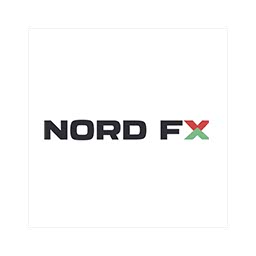 NordFX
NordFX
 XTB
XTB
 XM
XM
 eToro
eToro
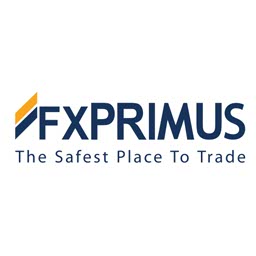 FXPrimus
FXPrimus
 easyMarkets
easyMarkets
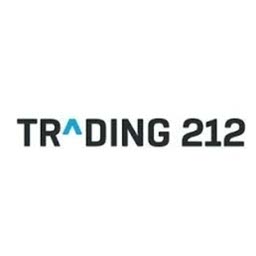 Trading 212
Trading 212
 Admiral Markets
Admiral Markets
 SpreadEx
SpreadEx
 ThinkMarkets
ThinkMarkets
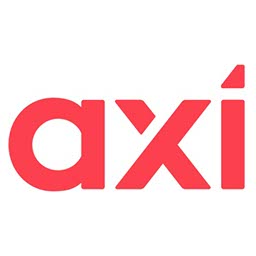 Axi
Axi
 HYCM
HYCM
 Swissquote
Swissquote
